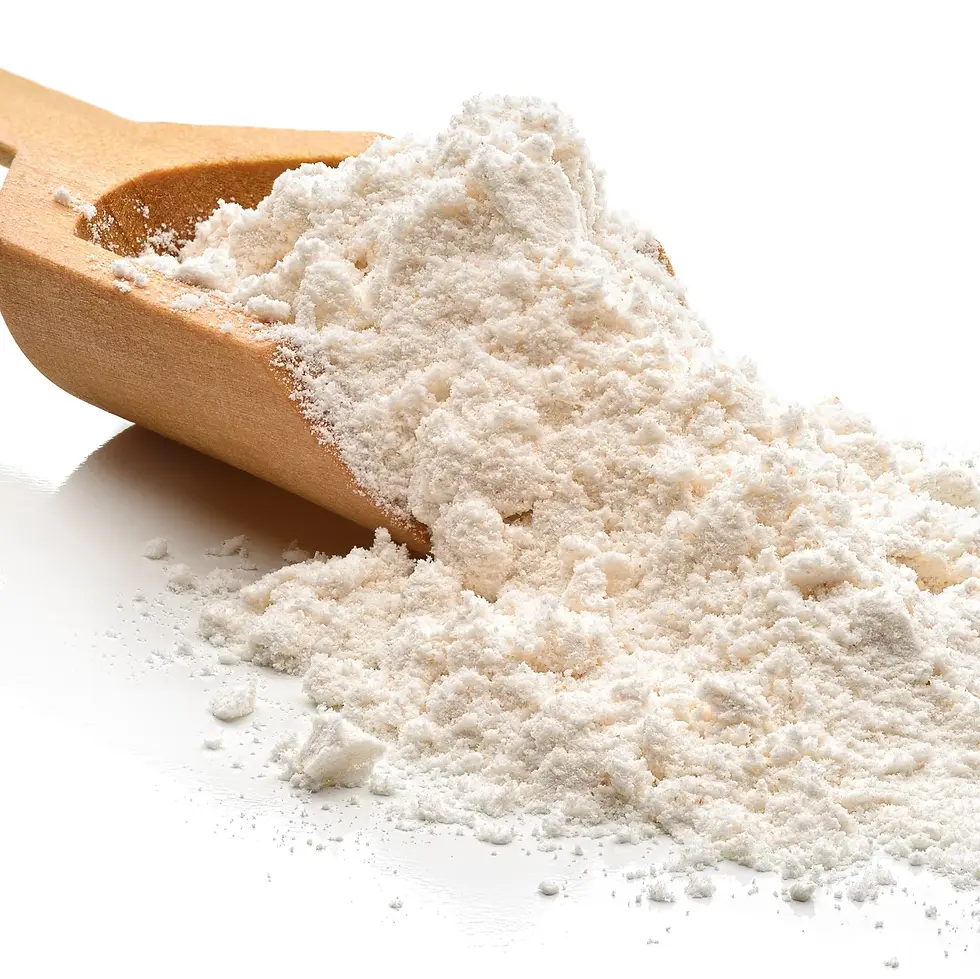Are Digestive Enzymes Essential for Your Dog?
- Kat Geeves
- May 26, 2024
- 4 min read
Updated: Aug 14, 2024
Ever wondered about your dog's dining journey, from the first bite to the backyard business? The digestive voyage, particularly the part played by enzymes, may not be your usual dinner conversation, but it's crucial to your pet's health.
For your pet to fully benefit from their meals, digestive enzymes are indispensable. These biochemical catalysts break down food into nutrients - without them, your pet's meal is just filler, not fuel.
So, let's explore the world of digestive enzymes for dogs and discover how your four-legged friend could be nourished by adding these to their daily diet.

What exactly are Digestive Enzymes?
Think of digestive enzymes as your pet's internal culinary team. These complex compounds masterfully break down food, ensuring your pets extract maximum nutritional value from every morsel they consume.
Every bite, every chew your dog takes, sets the digestive process in motion. Yes, even those voracious eaters who seem to inhale their food are kick-starting this process! This act of consuming food cues the release of digestive enzymes that accompany the food on its journey from the mouth to the stomach, and finally, through the intestines.
These digestive enzymes are not a one-size-fits-all. They come in three distinct types: proteases, lipases, and amylases. Proteases handle proteins, lipases tackle fats, and amylases deal with carbohydrates. These three macronutrients are the building blocks of all foods.
From their very first moments, puppies receive these essential enzymes from their mother's milk. As they grow and leave mother's milk behind, they begin to produce their own digestive enzymes. Some foods can also be a good source of these enzymes.
While it's true that most animals produce their own digestive enzymes (a necessity for survival), it's a misconception that they're always producing enough. There's a big difference between just surviving and truly thriving. Let's delve deeper...
Unlock the Power of Digestive Enzymes for Your Dog's Health
Does your dog suffer from digestive issues? Digestive enzymes could be the secret weapon you need. These mighty compounds are especially helpful for conditions like Exocrine Pancreatic Insufficiency (EPI), a disease that hampers a dog's ability to produce its own digestive enzymes.
Symptoms of EPI? Look out for weight loss despite a healthy appetite, or issues like loose or greasy stools. If you suspect EPI, make your first call to a vet.
But EPI isn't the lone culprit.
Chronic pancreatitis, leaky gut, IBD, allergies, arthritis, and other gut-related issues can also benefit from an enzyme boost.
And it's not just ailing pets who reap the rewards...
Healthy pets can also benefit from digestive enzymes. Why? Cooking destroys these essential compounds. Whether your pet's diet consists of processed kibble or home-cooked meals, the heat from cooking significantly reduces the number of viable digestive enzymes in their food.
What about raw-fed dogs? They're not immune either. While a well-balanced, species-appropriate raw food diet is optimal, factors like vaccines, pharmaceutical drugs, and even fluoridated water can disrupt your dog’s natural enzyme production. Plus, unless your raw food includes beneficial organs like the pancreas and gallbladder, your pet could be missing out!
As your pet ages, enzyme production naturally declines, potentially leading to an enzyme deficiency.
But there's a solution...
By boosting your pet’s ability to break down macronutrients, you’re empowering them to absorb and utilise those nutrients. You can provide the best diet in the world, but if your pet can't access the nutrients, they're not fulfilling their intended purpose. Digestive enzymes enhance your pet's digestion, unlocking the valuable nutrients in their food and fuelling their health and longevity.
Turn the tide on your pet's health with the power of digestive enzymes.
Boost Your Pet's Digestive Health
Looking to enhance your pet's digestive health? It's simpler than you think. Incorporating enzyme-rich foods into your pet's meal plan can significantly increase their digestive enzymes - and it all begins with the right choice of foods.
Consider these choices:
Fermented veggies
Kefir
Fruits like kiwi, papaya, banana, mango, and pineapple
Apple cider vinegar
Ginger
Raw honey
Organ meat
A sprinkle of these foods into your pet's diet can work wonders. Try adding a few fruit pieces several times a week, or a tablespoon of kefir every alternate day. Even a teaspoon of apple cider vinegar twice a week (for medium to large dogs) can inspire the production of digestive enzymes.
But there's more. A high-quality digestive enzyme supplement can fill the gap where the diet might fall short. It's a simple, consistent way to ensure your pet gets enough enzymes, especially if they're a fussy eater. You'll find potent digestive enzymes in our supplement range that can significantly boost your dog's nutrient absorption (shop here). This is particularly beneficial for older dogs or those transitioning to a raw diet.
Is your pet facing a digestive issue that hampers enzyme production? Or do they occasionally suffer from loose stools, or eat kibble or cooked food?
Maybe you just want to optimise their nutrient intake? Regardless, digestive enzymes for dogs are an essential part of a nourishing diet. Enhance your pet's health and see the difference yourself!















Comments